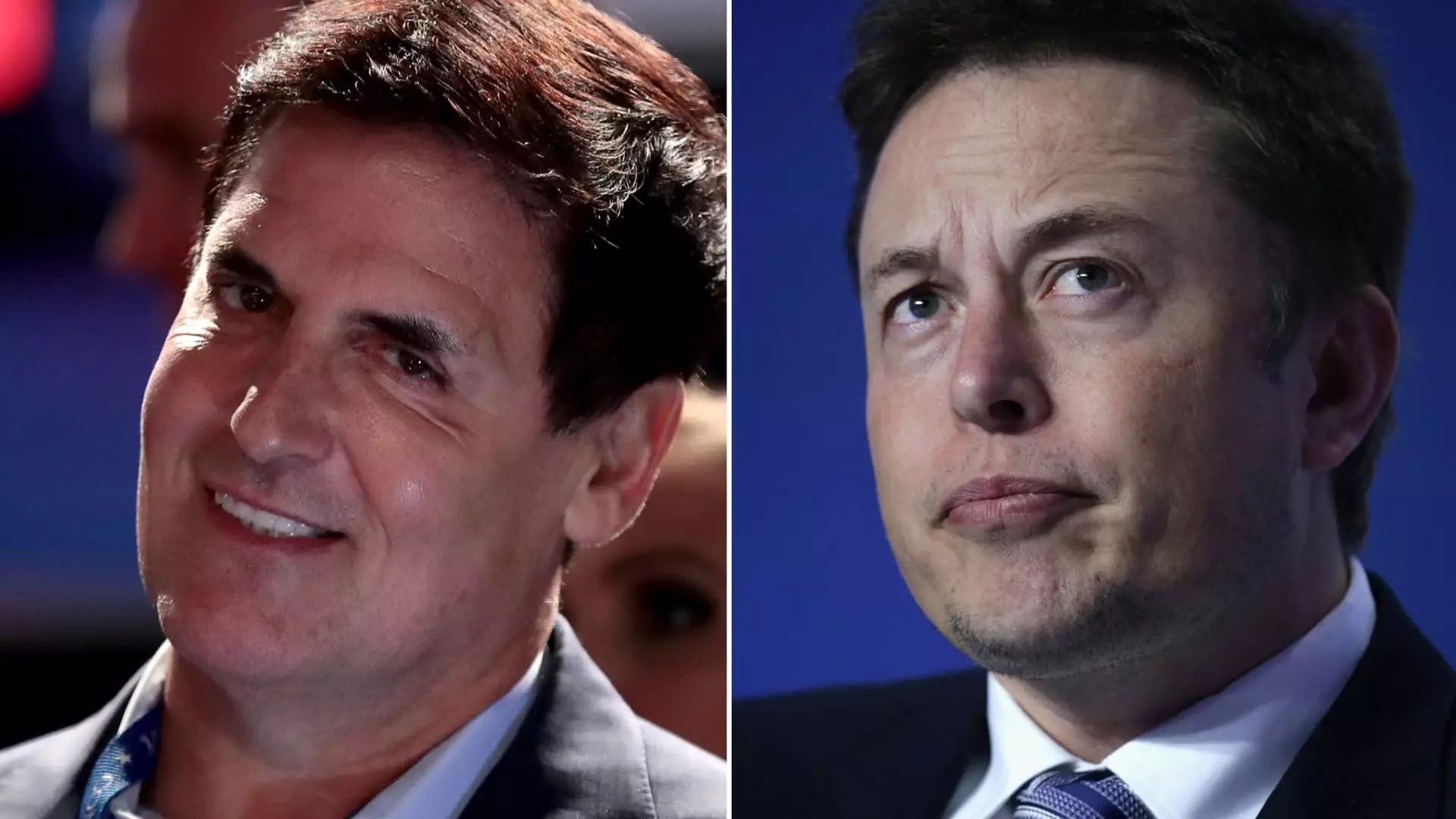In the intricate landscape of modern American politics, the interplay between wealth, influence, and ideology often plays a crucial role. Recently, a notable clash between two prominent figures—billionaire investor Mark Cuban and Tesla CEO Elon Musk—has illuminated the challenges and pitfalls that accompany political alliances among the ultra-rich. This situation highlights the unpredictable nature of political loyalties and the risk that comes with aligning oneself with polarizing figures such as former President Donald Trump.
Mark Cuban’s recent admonition to Elon Musk serves as a powerful reminder of the transactional nature of political relationships. Cuban, in a post on X (formerly known as Twitter), offered Musk a stark warning: that the loyalty Trump purports to extend to his supporters may dissolve when the time comes for them to seek a favor in return. The essence of Cuban’s message encapsulates the realization that those who are positioned in power often prioritize their self-interests over long-standing alliances.
Cuban’s insight isn’t merely a personal observation but reflects a broader understanding of political dynamics. Influence, particularly in the realm of high-stakes politics, is often contingent upon the whims of those in power. History has shown that individuals like Trump can be notoriously fickle, making promises that may not necessarily come to fruition. Cuban emphasized the importance of perspective when dealing with political figures, suggesting that the loyalty Musk perceives may not exist in the manner he expects.
For Elon Musk, the landscape has certainly shifted. His once critical stance toward Trump has reversed dramatically, with Musk now endorsing the former president and amplifying conspiracy theories that paint Democrats in a conspiratorial light regarding electoral integrity. This sharp pivot raises questions about Musk’s motives—whether they are driven by personal aspirations or the pursuit of favorable regulatory conditions for his businesses.
Musk’s return to Trump’s orbit is marked by a stark willingness to engage in rhetoric that has the potential to alienate many of his previous supporters. This perfect storm of political endorsement and conspiracy amplification signals a strategic gamble on Musk’s part, one that may compromise his reputation among politically diverse circles.
This scenario illustrates a critical facet of political engagement: the calculus of risk and reward. Cuban’s warning to Musk suggests that confidence in political partnerships should not be taken at face value. Political allegiances can shift, and unless one is prepared for the consequences of such partnerships, the outcome can be disappointing. Cuban, who is increasingly vocal in his public support for Vice President Kamala Harris and her economic initiatives, embodies a divergent approach—one that aligns his business interests with an agenda aimed at equitable economic growth.
Interestingly, Cuban’s newfound political activism positions him as an alternative hope for corporate America by promoting policies that might benefit a broader demographic. This contrasts sharply with the politics of Musk, who has expressed intentions of leading a proposed government efficiency commission—an initiative that may serve to amplify his influence should Trump retake the White House.
Shifting Political Landscapes
The divergence between Cuban and Musk underlines the complex motivations that govern wealthy individuals in the political arena. While Cuban advocates for an agenda that could reshape business standards and taxation rights, Musk’s ambitions appear more focused on maintaining his current corporate interests amidst a tumultuous political climate. Each billionaire’s strategy reflects their distinctive ideological inclinations and personal aspirations.
As the political landscape continues to evolve, the loyalties and alliances of wealthy individuals will undoubtedly be tested in the face of electoral upheaval. The cautionary advice from Cuban to Musk serves as a poignant reminder—wealth may afford influence, but it does not guarantee true loyalty in the shifting sands of political power.
The cautionary relationship dynamics between Mark Cuban and Elon Musk reveal the complexities of billionaire politics in contemporary America. Both men’s narratives illuminate essential lessons about influence, loyalty, and the inherent risks involved in political alliances. As these two titans of industry navigate their respective paths through the ever-changing political landscape, the outcomes of their choices will resonate beyond their individual ambitions, reflecting the broader challenges faced by the interplay of business and politics in the years to come.


Leave a Reply